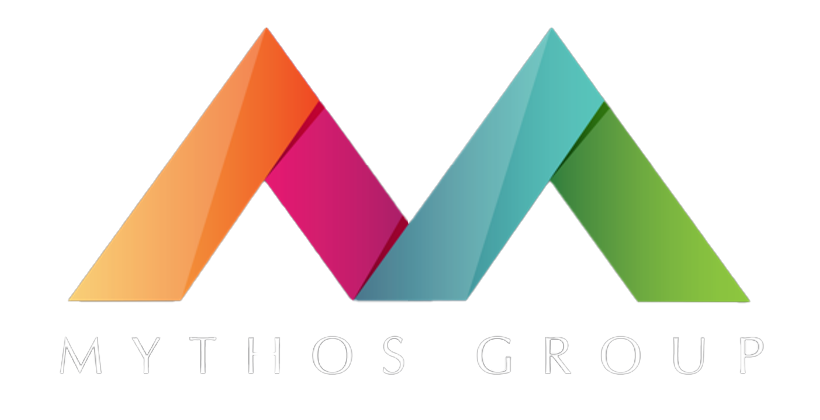1. What Strategic Business Outcomes Will AI Enable For Your Organization?
At the outset of your AI journey, the imperative is clear: AI initiatives must be deeply aligned with your core business vision and strategic objectives. AI is not an isolated technology project; it’s a transformative lever to accelerate business outcomes. Reflect on how AI can drive cost efficiencies, enhance revenue streams, and elevate customer experiences in ways that redefine your operational model. Can AI unlock entirely new markets or innovative business models? More importantly, how will it differentiate your organization in a rapidly evolving industry landscape?
Tesla’s AI-driven innovations offer a striking example. Their Autopilot and Full Self-Driving systems are not just enhancing vehicles; they are revolutionizing the transportation industry by driving growth and redefining what autonomous mobility means.
2. How Will You Measure Success And ROI In The Context Of AI?
Success without measurement is an illusion. Implementing AI is only valuable if you can quantify its business impact and demonstrate a clear return on investment. Establishing robust KPIs early on — whether related to cost savings, productivity gains, customer retention, or brand loyalty—is essential. These benchmarks provide critical guidance for decision-making and ensure you can adapt your strategy to maximize value over time.
Netflix sets a high bar here, leveraging AI-driven personalized recommendations to boost user engagement and retention. Notably, 80% of the content consumed on Netflix is guided by their AI algorithms, directly translating into revenue growth and market dominance.
3. What Data Infrastructure And Systems Integration Are Required?
AI’s transformative potential depends on the quality, availability, and accessibility of data. A fragmented or outdated data infrastructure can quickly become a bottleneck, limiting AI’s effectiveness. It’s vital to assess whether your organization has the real-time data pipelines, cloud platforms, and integrated systems needed to feed AI models with reliable, structured information. Additionally, data governance — covering privacy, security, and compliance — must be woven into your AI framework to build trust and accountability.
General Electric’s Predix platform exemplifies this approach, seamlessly integrating industrial data to power predictive maintenance solutions that save billions annually.
4. Which Processes and Domains Are Ready for Full AI Autonomy?
AI excels at automating well-defined, repetitive workflows, but it is not a one-size-fits-all solution. Identifying which processes can be fully entrusted to AI and which require human oversight is a strategic imperative. The optimal approach balances automation with human judgment, leveraging AI to amplify efficiency while preserving the nuanced decision-making that only people can provide.
JPMorgan Chase’s COiN platform automates contract review, saving hundreds of thousands of hours annually, yet critical legal decisions remain firmly in human hands.
5. How Will You Manage Risk, Security, And Compliance In AI Deployment?
With great power comes great responsibility. Deploying AI demands a rigorous approach to risk management, including ensuring transparency, fairness, and security. Your AI systems must be explainable, auditable, and resilient to threats like data breaches or model manipulation. Navigating complex regulations such as GDPR or CCPA is equally essential to avoid costly compliance failures and reputational damage.
Microsoft leads by example, embedding fairness and accountability into AI governance and championing human-in-the-loop processes that mitigate risk and uphold ethical standards.
6. What Organizational Capabilities And Talent Do You Need To Build Or Acquire?
AI is a multidisciplinary endeavor that requires a diverse set of skills, from data scientists and engineers to product managers and change leaders. Identifying talent gaps and building a workforce capable of not only developing AI but also integrating it effectively into business processes is crucial. Upskilling your current employees to work alongside AI and partnering with external experts where necessary will ensure you have the capabilities to scale AI solutions successfully.
Google’s strategic investment in AI talent has enabled breakthroughs in natural language processing and autonomous systems that place it at the forefront of innovation.
7. How Will You Ensure Cultural Buy-In And Drive Effective Change Management?
AI transformation is as much about people as it is about technology. For AI initiatives to succeed, you must cultivate a culture that embraces change, values experimentation, and sees AI as an augmentative force rather than a threat. Clear communication, training programs, and leadership engagement are key to overcoming resistance and empowering employees to leverage AI confidently.
Siemens demonstrates this balance, having increased efficiency by 20% through AI-powered smart factories, all while investing heavily in workforce training and culture building.
8. What Ethical Considerations Will Guide AI Development And Deployment?
Ethics must be the bedrock of your AI strategy. AI’s pervasive influence raises complex questions about bias, privacy, and accountability. It’s essential to design AI systems that promote fairness, protect sensitive data, and align with your organizational values. Regular monitoring and adjustment ensure that AI decisions reflect diverse stakeholder interests and societal norms.
IBM Watson’s commitment to ethics is evident in its AI Fairness 360 toolkit, which helps detect and mitigate bias to promote responsible AI use.
9. Which Partners And Vendors Should You Collaborate With To Accelerate AI Implementation?
No organization should go it alone in the AI race. Strategic partnerships can accelerate your AI journey by providing access to cutting-edge platforms, expert knowledge, and scalable infrastructure. Carefully selecting vendors and collaborators who align with your security requirements, technological needs, and strategic vision is paramount.
Spotify’s collaboration with Google Cloud AI has been instrumental in refining its recommendation engine, giving it a competitive edge in the crowded streaming space.
10. What Is Your Roadmap For Continuous Improvement And Scaling AI?
AI is not a one-time project; it is an ongoing journey that requires continuous iteration, evaluation, and scaling. Pilots provide valuable learnings, but the goal must be enterprise-wide adoption that drives meaningful transformation. You need mechanisms to pivot away from underperforming initiatives, invest in what works, and cultivate an AI center of excellence that sustains innovation.
Amazon’s relentless scaling of AI, from AWS to Alexa, exemplifies this approach, maintaining its leadership by consistently pushing the boundaries of what AI can achieve.
Embrace The Future With Confidence And Purpose
Leading an organization through AI transformation is a profound undertaking filled with both immense opportunity and significant complexity. The path to success demands thoughtful planning, clear leadership, and a strategic focus on aligning AI with your business’s unique goals and culture. These ten questions provide a roadmap for navigating this evolving landscape with clarity and confidence. Now is the time to move beyond theoretical conversations and take deliberate action. Gather your leadership team, confront these questions head-on, and start building an AI strategy that is visionary, practical, and impactful.
The future is not waiting, and the decisions you make today will shape your organization’s competitive edge tomorrow. Don’t wait for disruption to force your hand—be the catalyst for transformation. Lead with conviction, agility, and purpose, and position your company to thrive in the AI-powered world ahead.
If you’re ready to embark on this journey with a trusted partner, the Mythos Group team stands ready to support your success with tailored strategies and expert guidance.
Together, we can translate AI ambition into real business impact.







